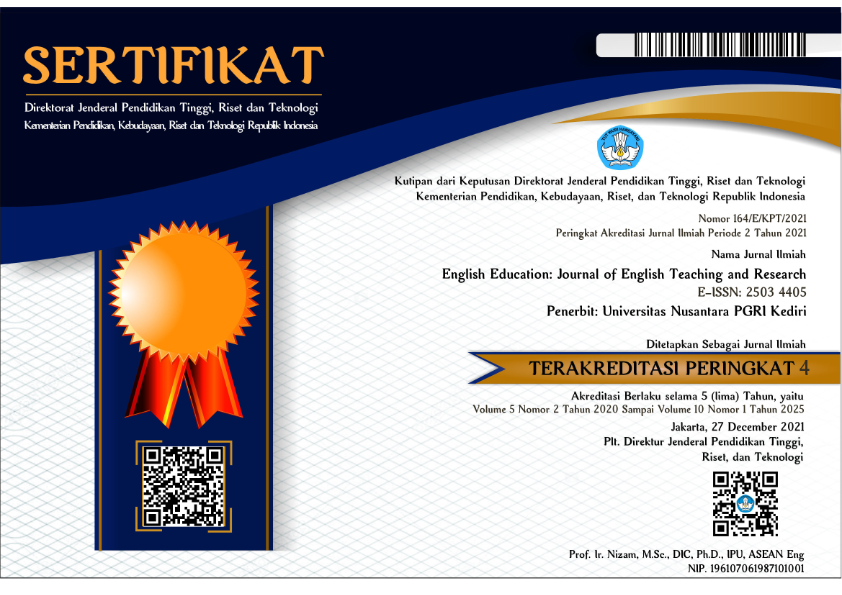DERIVATIONAL AND INFLECTIONAL MORPHEMES IN THE JAKARTA POST
DOI:
https://doi.org/10.29407/jetar.v4i2.13625Abstract
Many people do not know that morpheme and word are interrelated. A word can be a morpheme and can be form by combination of morphemes. More over, there are many types of morpheme with its function that affects either the sentence or the meaning. Because of the morpheme impact, writer wants to analyze about morpheme in the articles from The Jakarta Post Newspaper by its appropriatness for analyzed. Writer is going to relate to the theory from Victoria Fromkin about the types of morpheme; those are derivational and inflectional morpheme. This analyzing purposes to find out which word forming by derivational morpheme, which word forming by inflectional morpheme, how the indicated word forming, and what kind of alteration are found. Writer is going to use the descriptive qualitative method. From 6 data for derivational morpheme, writer found 8 words forming by derivational morpheme and from 8 data for inflectional morpheme, there are 29 words forming by inflectional morpheme. From the data, writer found that each morpheme has its function and impact the meaning, class of word or the grammatical function of the base word. By this paper, people are going to know how prefixes and suffixes affect the word.
Downloads
Downloads
Published
Issue
Section
License
Authors who publish with this journal agree to the following terms:
- Copyright on any article is retained by the author(s).
- The author grants the journal, the right of first publication with the work simultaneously licensed under a Creative Commons Attribution License that allows others to share the work with an acknowledgment of the work’s authorship and initial publication in this journal.
- Authors are able to enter into separate, additional contractual arrangements for the non-exclusive distribution of the journal’s published version of the work (e.g., post it to an institutional repository or publish it in a book), with an acknowledgment of its initial publication in this journal.
- Authors are permitted and encouraged to post their work online (e.g., in institutional repositories or on their website) prior to and during the submission process, as it can lead to productive exchanges, as well as earlier and greater citation of published work.
- The article and any associated published material is distributed under the Creative Commons Attribution-ShareAlike 4.0 International License








 Article template
Article template



